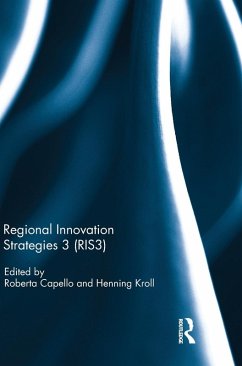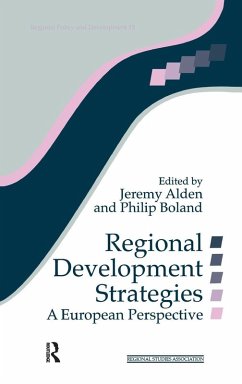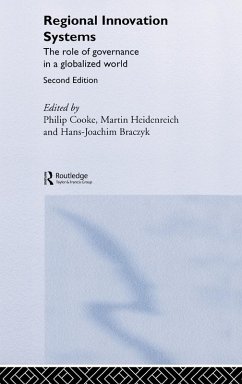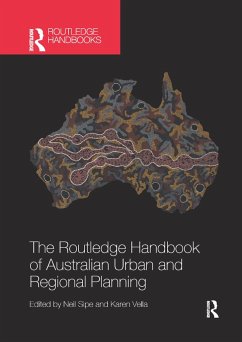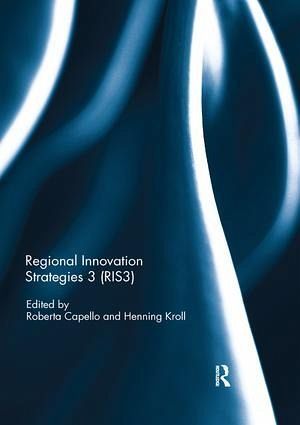
Regional Innovation Strategies 3 (RIS3)

PAYBACK Punkte
27 °P sammeln!
With regions and nations having formally fulfilled the ex ante conditionality, this book provides a first overall review of RIS3 policy processes, aiming to assess the consistency of the concept of smart specialization from an applied, policy-oriented perspective. Moving from the theory of design to the practice of implementation, the reflections and case studies in this volume reveal strengths and weaknesses in the way concrete strategies have been conceived and implemented, enabling reflections on the future of the concept in a more general sense. In many cases, smart specialization strategi...
With regions and nations having formally fulfilled the ex ante conditionality, this book provides a first overall review of RIS3 policy processes, aiming to assess the consistency of the concept of smart specialization from an applied, policy-oriented perspective. Moving from the theory of design to the practice of implementation, the reflections and case studies in this volume reveal strengths and weaknesses in the way concrete strategies have been conceived and implemented, enabling reflections on the future of the concept in a more general sense. In many cases, smart specialization strategies turn out to be new variants of regional development policies, embracing the importance of a place-based approach. However, the approach's potential to add distinctive value will stem from its capacity to turn innovation and knowledge into tools for local development by harnessing them for wider territorial development goals. By helping regions to identify and leverage untapped resources through new processes, smart specialization-based policies may help to reconcile cohesion and competitiveness objective. Consequently, new approaches appear most promising where institutional, administrative and political conditions allow the setup of genuinely new processes and where their focus is on territorial assets in a comprehensive manner rather than mere industrial renewal. This book was originally published as a special issue of European Planning Studies.





